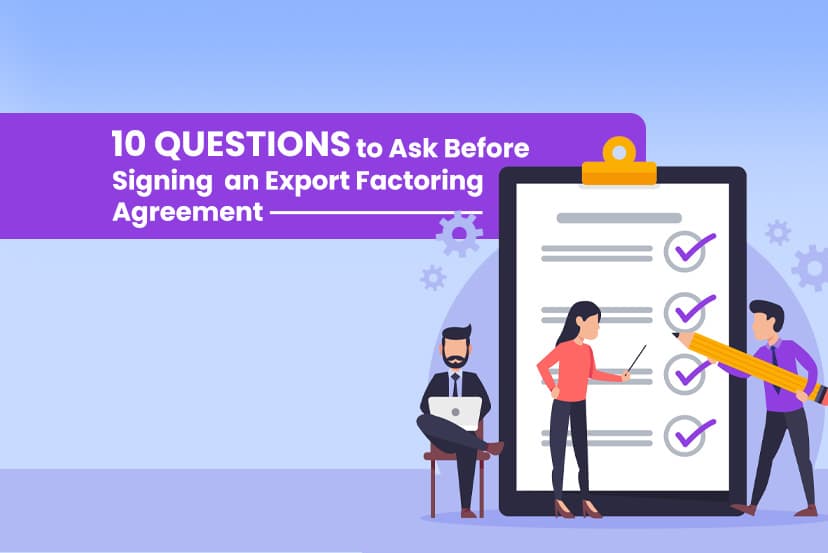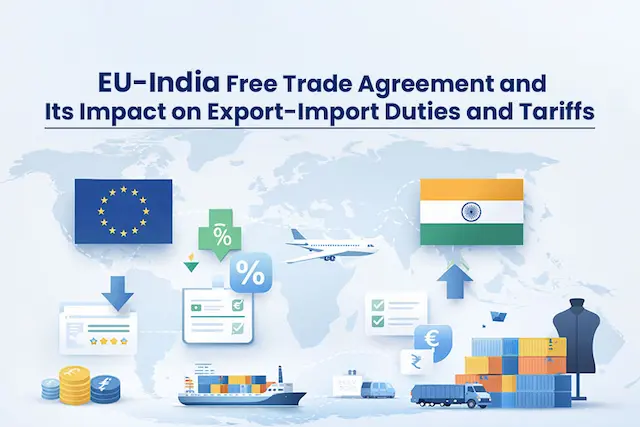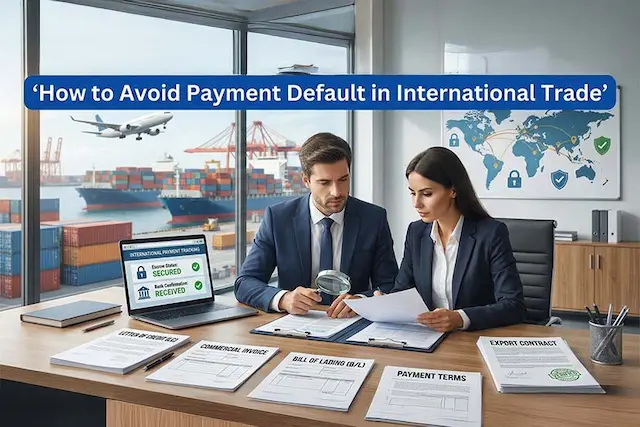Export factoring is emerging as one of the most popular cash flow management tools for exporters, particularly MSMEs, that helps exporters overcome the risk of non-payment of receivables. A company need not wait 30, 60, or 90 days to be paid by foreign customers, as there is an opportunity to obtain quick money through the sale of receivables to a factoring company. However, you have to be careful to know what you are venturing into when you are ready to put your signature on the dotted line. A wrong agreement might make you lose much more than you gain, and a good one could help you grow faster.
Key Questions Every Exporter Should Ask
Here are 10 critical questions you should ask before committing to an export factoring deal –
Q1: What type of factoring is being offered, Recourse or Non-recourse?
The initial aspect to clarify is whether your export factoring application is recourse or non-recourse. Under recourse, you are liable to pay the factor if your buyer defaults. With a non-recourse scheme, the credit risk is taken by the factoring company, hence providing improved protection but often at an increased fee. It is important to understand this risk-sharing setting prior to committing.
Q2: What are the fees and hidden charges?
Costs of factoring depend on the provider of factoring services and the type of operations you have, and the nature of payment. In addition to the headline percentage fee, there can be other costs, which can be called hidden costs, such as application fees, wire transfer fees, or even currency conversion fees. These can accumulate rapidly and take a dent in your margins. Be sure to request a breakdown of fees in writing, so you can determine the actual cost of financing and estimate it against other possible funding sources.
Q3: How quickly will funds be released after the invoice is submitted?
Among the primary benefits of trade finance based on factoring, speedy cash flow would be one of them. Some companies release money within 24-48 hours, whereas some will take a week. There are potential disruptions to your operations since you may depend on the cash to acquire raw materials or pay for logistics. Payment schedules make sure that they are confirmed in advance and that they align with production and shipping.
Q4: Does the agreement cover all markets or only selected countries?
Some factoring businesses restrict international trade finance to specific geographical locations or a list of buyers accepted. If you are selling to a number of regions, ensure that your arrangement encompasses your markets. Otherwise, you may end up not being eligible to receive funding for some invoices, which may interfere with cash flow. Some clarity on this in advance can give you a better knowledge of the operating surprises and negotiate better terms.
Q5: Are currency risks and exchange rate fluctuations addressed?
If your invoices are in foreign currencies, your export finance arrangement must clarify the matter of currency conversions. Fluctuations in the exchange rate can affect how much margin you receive. Some factors provide forward contracts or lock-in rates to guard against this risk, but there is another that merely pays at a current rate. Ensure you always enquire whether such costs are passed onto you or whether they are consumed by the factoring company.
Q6: What is the minimum and maximum funding limit?
The companies that provide export factoring are likely to impose limits on how much money they are willing to advance. The working capital facility that you require should match the limits in the agreement. A cap that is too low may limit your ability to take large orders. On the other hand, getting acquainted with the minimum funding requirement will help you know that you will not be forced to pay excessive costs to carry out slight transactions.
Q7: How is credit risk assessment for buyers conducted?
An important advantage of invoice factoring is that the factor assesses your buyers’ creditworthiness. What tools and databases do they utilise for risk assessment, and how often do they update buyer profiles? It is paramount since a misjudgment may either deny you lending to certain buyers or subject you to bad debts in case the due diligence is not satisfactory.
Q8: Can the agreement be terminated or modified easily?
Business demands are dynamic, and thus, it is necessary to determine whether your export factoring contract is flexible. Are you tied in at a fixed term, or free to cancel earlier without huge penalties? Are there ways to increase the limits of funding or the markets that will be covered when your business expands? Flexible contracts will help you avoid substantial expenditures and operational limitations in the future.
Q9: What kind of reporting and account management is provided?
Trade finance services are critical when it comes to transparency. Enquire into whether the factoring firm has online portals and real-time payment tracking, and month-end statements. Having the right information at the right time aids in the planning of production, building up of cash, and the prevention of disputes. The reporting should be more user-friendly and detailed, thus easier to manage the relationship.
Q10: How will disputes with buyers be handled?
Payment schedules can be affected by disagreements regarding the quality of the products, late deliveries, or invoices. In a global trade finance setup, understand whether the factor will contribute to the solution of the arising disputes, or you will be left alone. The active factoring partner may mediate and keep healthy relations with your buyers without compromising the necessary delays in the release of funds to the parties.
Choosing the Best Path for Your Export Financing
The need to select the optimal export factoring company is not just a financial move; it is a strategic one. The right questions will allow you to defend your margins, minimise risk, and guarantee repeat cash flow. Spend a little time comparing, reading between the lines, and aligning the deal to your business objectives.
When it comes to export factoring in India, Credlix is a fast, transparent, and hassle-free working capital management solution to MSMEs. Through competitive rates, multiple market coverage, and flexibility in the agreement, Credlix assists exporters in releasing the funds of receivable and protects against buyer non-payment. The online system is user-friendly, and its real-time update transactions are dispatched with ease in managing the cash flow.




